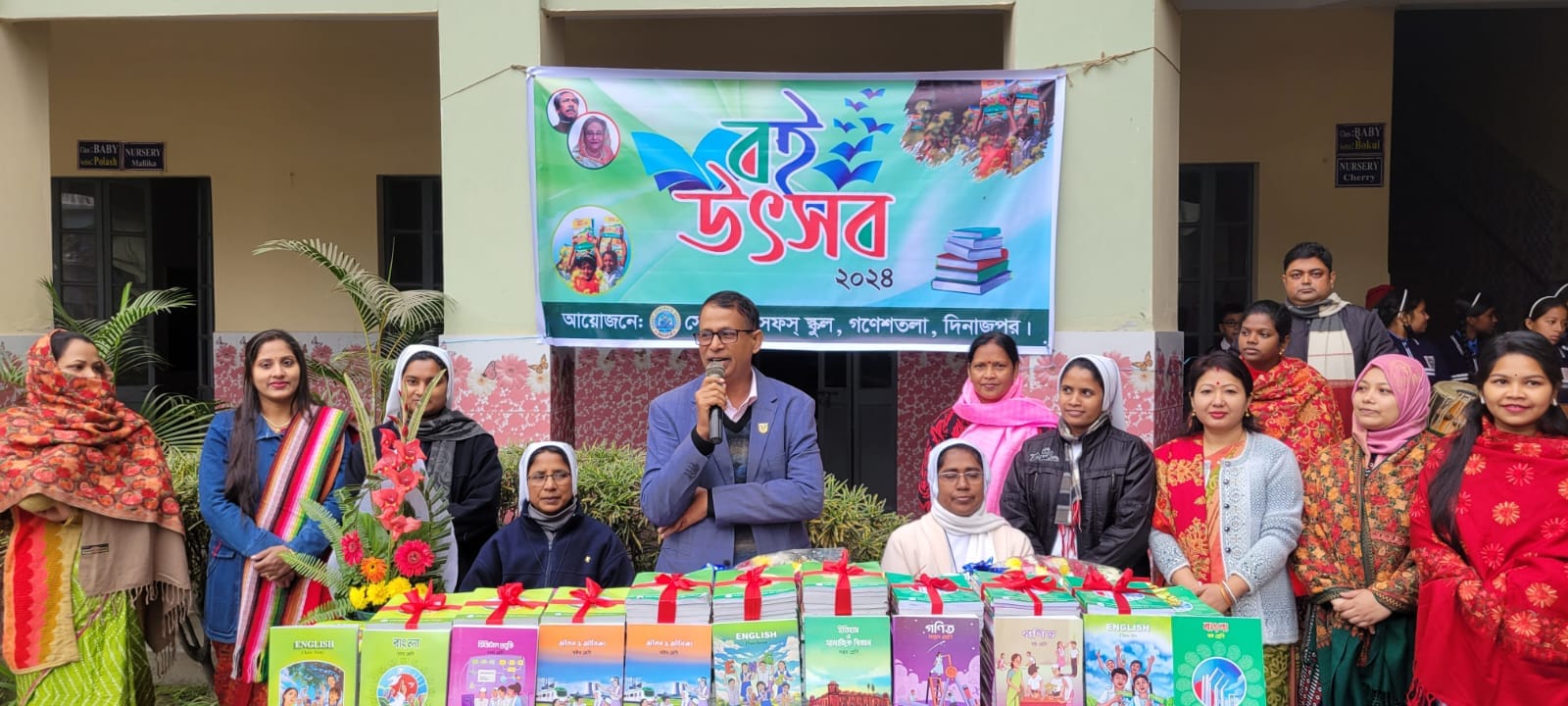Bangladesh celebrates the New Year by handing out new books to students
Since 2010, 1 January has become the day of the Book Distribution Festival with activities across the country. Some 300 million books were given to more than 38 million school children. The day symbolises the country’s commitment to literacy, which now stands at 74.1 per cent of the population.
Dhaka (AsiaNews) – Following a tradition that began several years ago, 2024 began in Bangladesh with the annual Book Distribution Festival for students.
Inaugurated by Prime Minister Sheikh Hasina on 31 December, the festival saw the distribution of free textbooks for the 2024 academic year in various districts and subdistricts of the country.
More than 300 million copies of new textbooks were given to 38,128,324 students across the country, in a nationwide event that is meant to symbolise the government's commitment to education, which this year also falls on the eve of upcoming elections, on 7 January.
Students from various schools in Dhaka gathered yesterday, New Year’s Day, at the National Government Primary School in Mirpur in what was more than a celebration of knowledge, as it included a display of colour-filled arrangements.
"Today I received new textbooks. They are colourful. I like to read new books,” said Tuli Gomes, a joyful 10-year-old Catholic student from Mirpur.
State Minister for Primary and Mass Education Ministry Md Zakir Hossain emphasised the significance of the event, stating that, "The page of a book creates wonder in the mind of a child.”
Hossain also reiterated the government's commitment to hiring new teachers to address staff shortages in schools.
The book festival, which started in 2010, is now a tradition that has helped increase the literacy rate in the South Asian country.
Since 2017, the initiative has also included the distribution of Braille books for visually impaired students and editions in various ethnic languages.
It symbolises a collective effort to improve education in Bangladesh, which has seen the literacy rate rise from 18 per cent in 1971 to 74.1 per cent today.
31/12/2018 16:43







.png)










